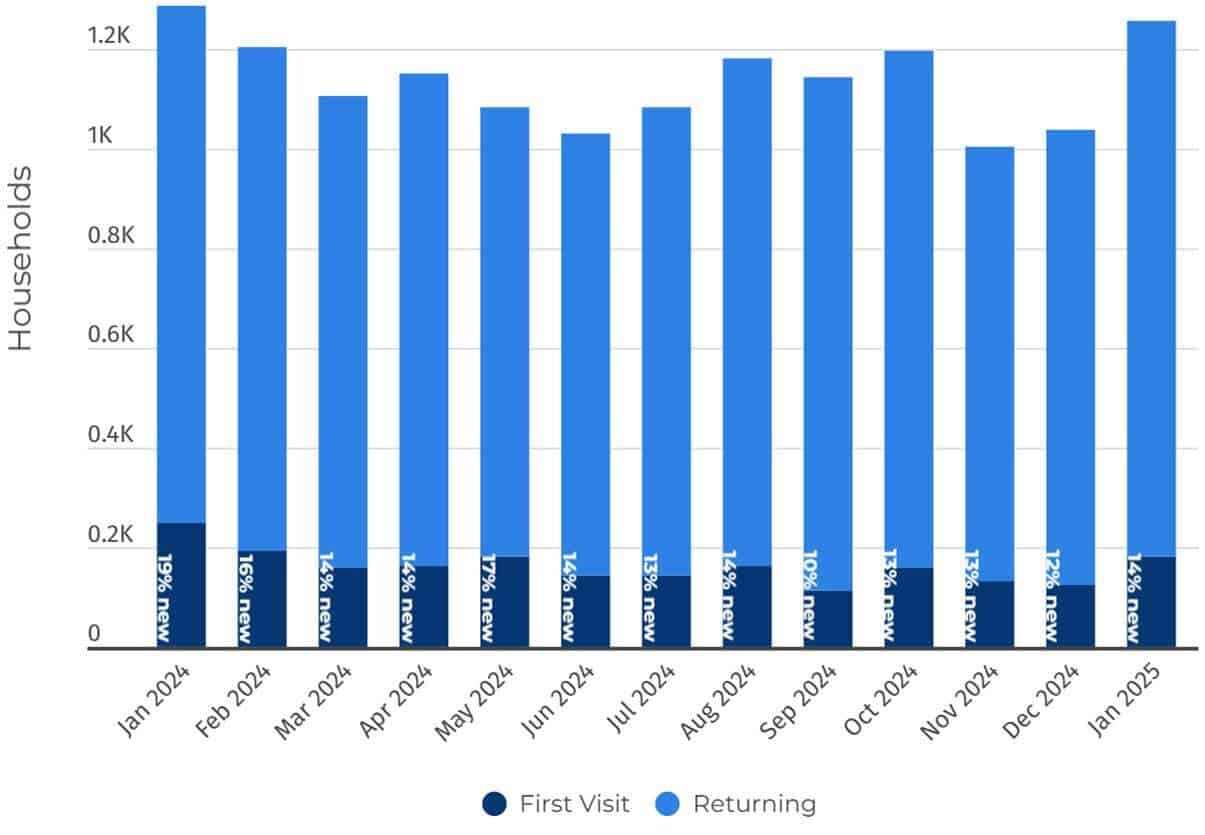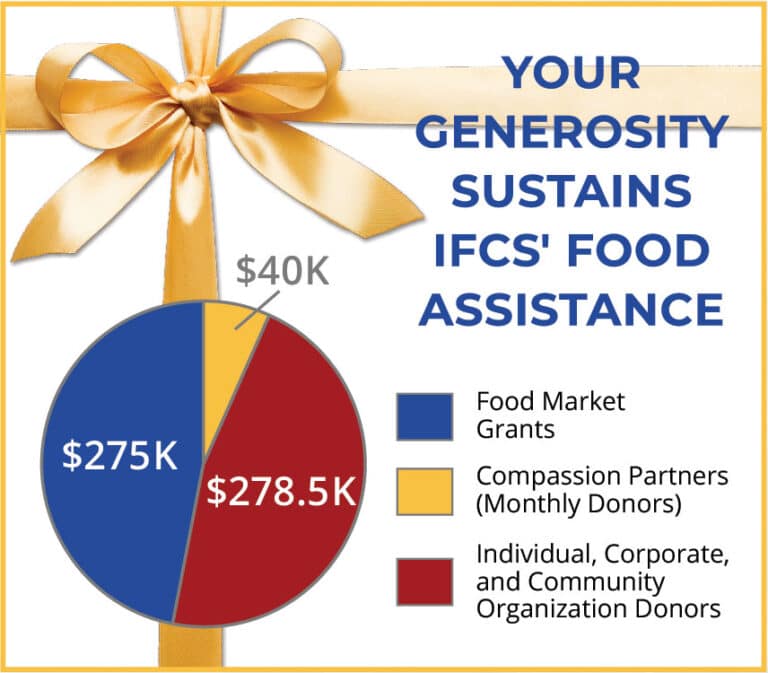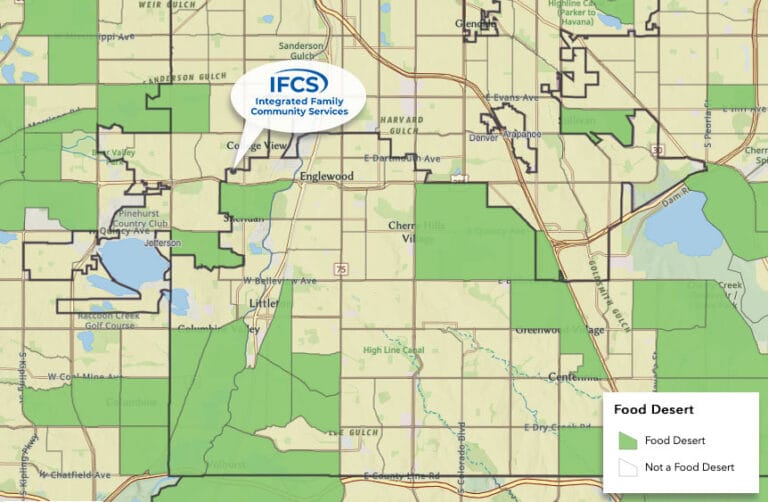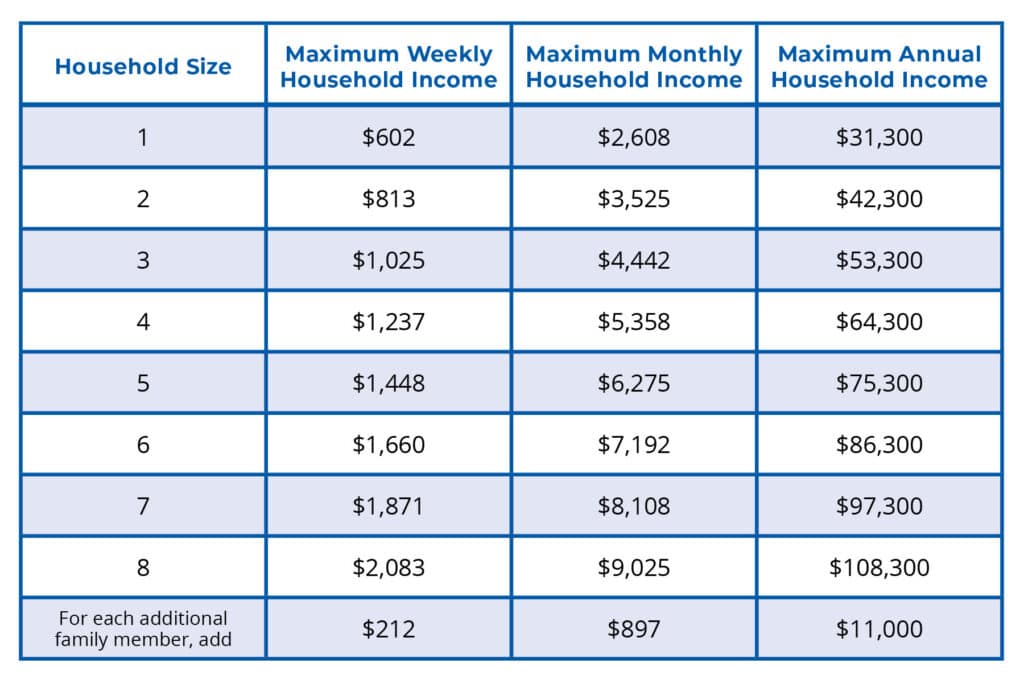ABOUT US
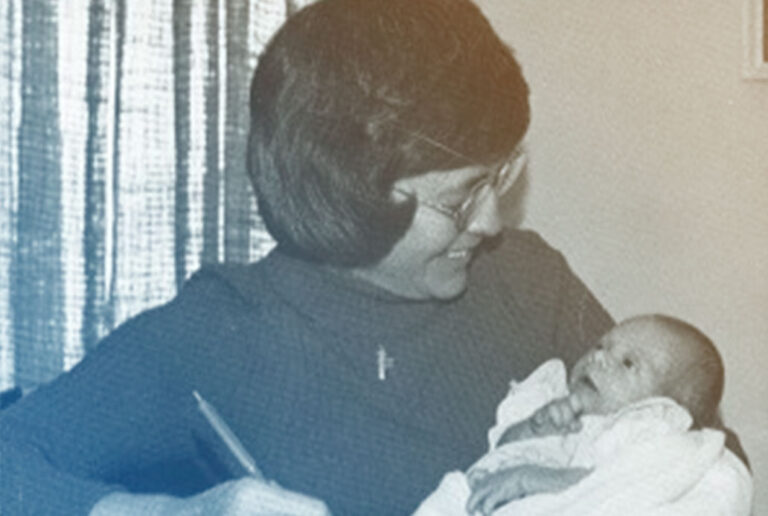

Our Beginnings
Integrated Family Community Services (IFCS) began in 1964 when south metro Denver resident Maida Navis noticed that some of her neighbors needed extra help. Working families were not making ends meet, neighborhood children went without necessities, and elderly residents were losing their independence.
Mrs. Navis gathered neighborhood leaders for a “Neighbors Helping Neighbors” effort, forming the original Inter-Faith Task Force for Community Services. The task force provided services designed to help struggling neighbors achieve independent living – some for the first time.
Those early leaders were determined to provide assistance that would always be a hand up rather than a handout. In 1968, IFCS was designated an “official poverty agency” of south metro Denver.
Mission
Integrated Family Community Services (IFCS) provides basic human services and enrichment programs to low-income people, using community resources. IFCS fosters self-sufficiency and respects the dignity of each client, serving the greater Denver metro area.
Programs
Through a variety of resources IFCS helps individuals and families achieve self-sufficiency. Best-known for our food market, IFCS services also nourish lives in a broader sense through financial assistance, school supplies, holiday grocery boxes, and recreation center vouchers.
Funding Sources
Donations from businesses, individuals, community organizations, as well as grants from foundations and federal, state and local governments are IFCS’ major sources of funding. Fundraising, material and in-kind donations, and thousands of volunteer hours play an integral part in the continuation of IFCS services.
IFCS Today
Since 1964, in collaboration with community partners, IFCS has provided an immediate response to hunger, the most basic need. We believe everyone deserves to be healthy, and that individual access to nutrition affects the overall health of our community.
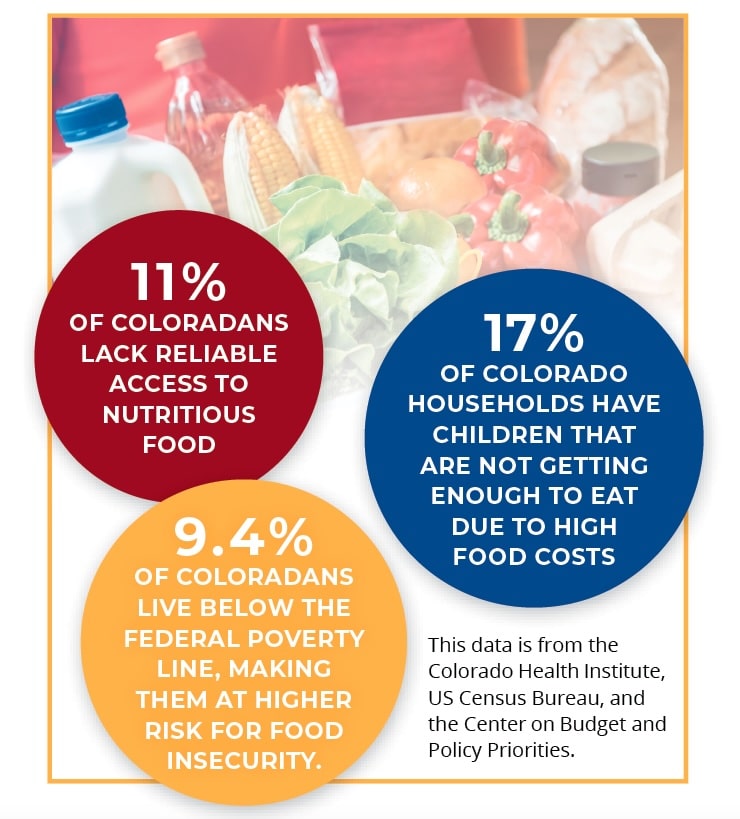
Colorado Hunger Facts
According to Food Bank of the Rockies, “The most recent data from Feeding America’s Map the Meal Gap study reveals that [within] Food Bank of the Rockies’ service area: 1 in 9 people are food insecure. Included among those people are the 1 in 7 kids who experience food insecurity.“
Recent Data from the Colorado Health Institute, US Census Bureau, and the Center on Budget and Policy Priorities, shows:
- 11% of Coloradans lack reliable access to nutritious food.
- 17% of Colorado households have children that are not getting enough to eat due to high food costs.
- 7.7% of older adults live below the poverty line in Colorado, making them at higher risk for food insecurity.
- 9.4% of Coloradans struggle financially, living below the federal poverty line.
See this data and more in a Hunger Facts Page compiled by Hunger Free Colorado.
Responding to Greater Needs... Because of YOU!
SIFCS Program Data shows that throughout 2024, over a thousand families were served each month. (Decreases in November and December traffic are attributed to holiday and construction closures.)
The needs are great, and IFCS is able to respond effectively thanks to a mighty force of volunteers and various funding sources. In 2024 alone, over 50% of the funding IFCS used to provide food assistance to low income households was sourced through donations from individuals, corporations, and community organizations. Nearly 7% of this funding came from our Compassion Partners alone, who sustain IFCS’ services with committed monthly donations. Gifts of all sizes work together to accomplish a shared goal of nourishing lives in the community:
- Providing both fresh and shelf-stable, culturally responsive foods, with no-cook meals for those who are unsheltered;
- Offering food source alternatives that allow IFCS to supply larger quantities, and more varied options, of high-value proteins;
- Creating a “market of choice” where participants may select the ingredients they most like and need, while reducing waste.
Even in the toughest times, the atmosphere in IFCS’ Market is one of heartfelt gratitude and hope. Throughout the day, our program participants express their gratitude with statements like, “Thank you so much – Now I can put gas in my car,” or “Now I can use my paycheck to cover the electric bill or rent!” Their monthly food assistance, made possible by you, is greatly appreciated.
IFCS Serves Food Deserts
IFCS’ service area includes various neighborhoods designated as “food deserts” and zip codes identified as having highest needs, as you can see by these maps.
Lack of access to healthy food options leads to a greater risk of chronic disease and poor health outcomes including diabetes and obesity. The USDA defines food deserts as low access to supermarkets or grocery stores.
The Community Needs Index measures economic and demographic data to better understand community demand for healthcare services. The index score is an average of five different scores measuring barriers to various socio-economic capital for each community at the zip code level. The darker the gradient, the higher the need.
Post-pandemic, IFCS is seeing the highest needs for food support ever in our history. Food insecurity is not decreasing, and in some cases we even see increases in the monthly numbers of visitors to our Market. Without the emergency resources provided during the pandemic, and with rising costs caused by inflation, many more are struggling with hunger.

